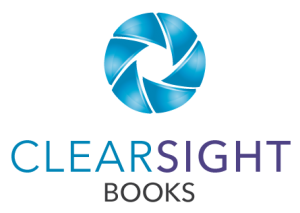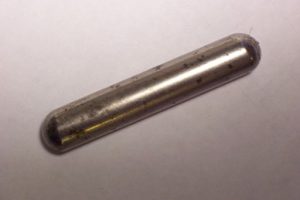Cows are indiscriminate in their eating habits, often swallowing foreign objects along with their food. When those foreign objects happen to be sharp metallic items such as nails, serious damage can be done to the cow’s digestive system and other organs. It is a huge potential problem, so how do farmers get the metal out?
Generally, they don’t.
Before a calf turns one year old, the farmer feeds it a magnet, which stays in the rumen or reticulum (one of the early chambers in a ruminant’s digestive tract). Any metallic items the cow swallows are attracted to the magnet, and the cow happily lives out its days with a stomach full of nails (so to speak). (If the cow does not have a magnet and ingests something that pierces a wall and causes problems, aka hardware disease, the farmer does indeed try to get the metal out.)
When I learned about cow magnets, I thought, Brilliant! Stop trying to solve the obvious problem; mitigate the bigger issue. Don’t worry about getting the metal out; just worry about avoiding any damage the ingested metal might do.
I love unconventional problem solving. I knew I had to figure out how cow magnets related to books and business strategy, so…
What problem do authors think they need to solve, when really there is something bigger to pay attention to?
Low book sales.
Are low book sales really a problem?
Most of my clients are business owners and entrepreneurs—consultant, coaches, professional speakers—who are using their book as a tool to support their overall business. Their primary gig is not writing but rather the other services they offer. And yet sometimes they still get tangled up in worrying about book sales.
My usual advice: unless you have scale, don’t worry too much about book sales; worry about using your book to grow your core business.
Consider: Many nonfiction/business books address a particular, sometimes very niche (read small), audience. How do you reach those individual people, make them aware of your book, and inspire them to purchase it? When you do reach them, how many books will you sell at, let’s say, $5 a pop? A thousand? Five thousand? How much time, money, and energy did it take to get those $5 bills?
What if instead you spent that time, money, and energy on using your book as marketing tool to get $50k consulting engagements or $5k speaking engagements? How many books do you need to sell to reach the equivalent of one of your primary engagements?
For most of my clients, the profit margin is much higher on their primary services than it is on books.
Of course pay attention to book sales…
A farmer would never spill a box of nails and leave the pile of nails there saying, “Oh, it’s OK; the cows have magnets. They can eat as many nails as they want.” No, the farmer still cleans up the nails (and wire and screwdrivers and so on) to reduce the chance of ingestion. There’s no need to test a magnet’s effectiveness to its extreme.
Likewise, I’m not suggesting you don’t pay any attention to book sales. However, I am suggesting you focus on built-in opportunities to sell books rather than stress about the volume you sell.
For example, if you often speak at conferences, sell your books there. You’ve got an audience already interested in your topic (or they wouldn’t be there listening to you). Offer your books at a discounted price (or give them away) so that more people get them, which increases the likelihood of your getting leads to other speaking or consulting engagements.
Or, are you consulting for large companies? Offer your book at a discount when they buy in bulk—one for every manager! You get the idea…
What is your book sales focus?
This unconventional thinking about book sales won’t work for everyone. If your primary role is “author,” yes, learn about marketing and pay attention to book sales. If you have scale and significant marketing reach (high volume of followers, access to large audiences, large list of email subscribers, etc.), yes, understand and implement product marketing so you maximize book sales.
But if you are a business professional for whom a book is a support tool, consider what problem you really need to solve. Instead of trying to extract a small piece of metal, focus on the health of the cow. Instead of trying to extract a few dollars in book sales, focus on the health of your business.




